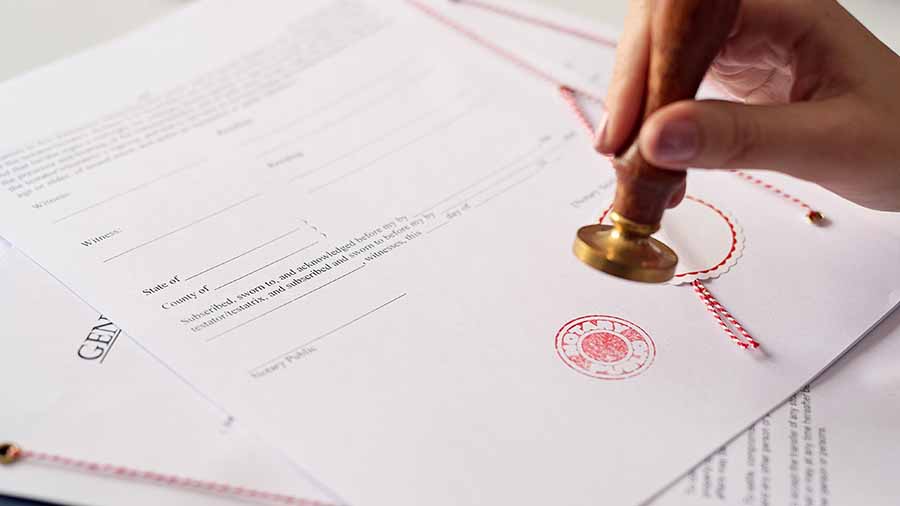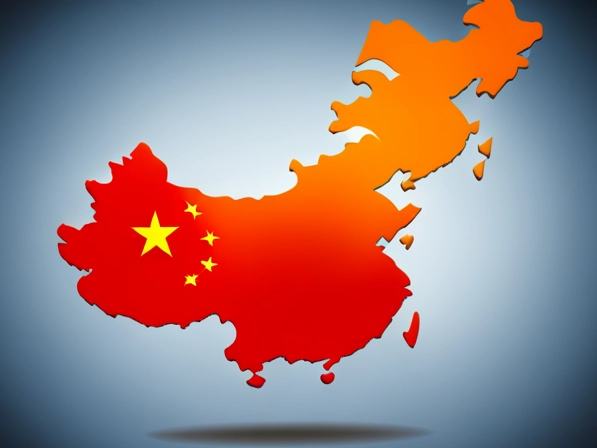Table of Contents
showSpending too much on recruitment, payroll or global HR?
We help you find the Best Providers at the lowest cost.
In the intricate landscape of Chinese business culture, a small yet incredibly important item wields enormous influence – the company chop. This seemingly ordinary stamp, also called a seal, symbolizes tradition and is vital for conducting business in China. In this article, we’ll take a closer look at company chops in China, exploring their different types, their essential roles, and the critical importance of keeping them safe. Join us on a journey to understand the significance of these business seals in China’s intricate corporate landscape.
Understanding Company Chops in China
In the Western world, signatures are customary to authorize documents and transactions. However, in China, company chops take center stage. These seals, likened to an official stamp of approval, play a pivotal role in the country’s business landscape.
What Exactly Are Company Chops?
Company chops, also referred to as seals or stamps, are far more than just decorative emblems or symbols. They are essential tools required for conducting business in China, effectively replacing the conventional signatures commonly used in Western countries. They are tangible representatives and legal proof of a company’s activities within China’s borders.

Interestingly, the custodian of the company chop is not its owner but rather a temporary keeper designated by the company. This is a distinctive aspect of the Chinese business practice. The rights and obligations arising from using the company chop belong to the company itself, not the individual who holds it.
To grasp the significance of company chops in China, it’s crucial to understand their multifaceted roles:
- Legal Authentication: Company chops serve as legally binding signatures in China. They validate contracts, agreements, and official documents. Without the company chop, a document may lack legal force.
- Business Transactions: In the context of business deals, the use of the company chop signifies the approval and consent of the company. It confirms that the company is a party to the transaction.
- Banking and Finance: Company chops are also vital in financial matters. They are used to endorse checks, open bank accounts, and approve financial transactions. Banks often require the company to carry out such activities.
- Official Documentation: Various government and administrative procedures necessitate using company chops. This includes applications for licenses, permits, and registrations. Without the company chop, these processes can be challenging to complete.
- Corporate Identity: The design and appearance of a company’s chop are distinct and unique, reflecting the company’s identity and brand. It’s a functional tool and a symbol of the organization.
The 5 Main Types of Company Chops in China
Unpacking the world of company chops, we find five main types, each with its unique purpose and significance.
1) Official Company Chop
The official company chop is the most potent of them all. When important documents require signing, it takes action, providing the legal authority needed. This chop holds the widest scope of use among all the seals and symbolizes the rights of the company’s legal persons.
Official letters, contracts, official documents, certificates, and other materials issued in the company’s name bear the official chop, rendering them legally binding. However, certain documents, such as invoices, demand a special invoice chop.
2) Financial Chop
The financial chop is the go-to seal for all financial matters. It plays a crucial role in money, finances, and banking transactions. Opening bank accounts, issuing checks, authenticating financial documents like tax filings and compliance documents, and most bank-related transactions all call for the financial chop’s authoritative imprint.
While the financial chop is a mandatory seal, an interesting dynamic arises: many companies keep their financial and company chops separate. This separation is a strategic move to mitigate the risk of misuse. Companies can maintain better control over their financial operations by ensuring that the financial chop exclusively endorses financial transactions.
3) Legal Representative’s Personal Chop
The legal representative’s chop is a seal held and wielded exclusively by the company’s legal representative, the primary figure identified on the company’s business license. This individual possesses the authority to enter into binding obligations on behalf of the company. Unlike the company’s official chop, which represents the entity itself, the personal chop represents the person serving as the legal representative.
While a company can have only one legal representative, the personal chop can be used either in place of a signature or alongside it, adding an extra layer of verification to documents and agreements. Registering the legal representative’s chop with the local Public Security Bureau and the company’s bank is essential, ensuring its official recognition and validity.
4) Contract Chop
While not a statutory requirement, many companies opt for a separate contract chop besides their official company chop. The contract chop comes into play when the company needs to sign contracts with employees, vendors, or other parties or when executing agreements between salespeople and clients.
This seal holds a lower authority level than the official company chop but is still valuable for delegating authority within the organization. It allows for a more nuanced approach to contract management and can help streamline internal processes.
5) Invoice (Fapiao) Chop
The invoice chop is an essential and mandatory seal for companies engaged in financial transactions. It is specifically used for issuing official invoices and tax receipts, known as “Fapiao.” In China, having a stamped invoice is a prerequisite when declaring a purchase as a legitimate business expense.
The invoice chop plays a pivotal role in tax compliance and financial transparency. Companies must use it diligently and accurately when providing Fapiao to clients and customers. This seal helps ensure that all financial transactions are properly recorded, tracked, and reported to tax authorities, contributing to the company’s fiscal responsibility and legal compliance.
Electronic Chops: Keeping Up with Technology
As technology advances, so does the world of company chops. The electronic chop emerges as the digital counterpart, used for online transactions, including financial and contractual ones. The Electronic Signature Law of the PRC grants electronic signatures, including electronic chops, the same legal status as physical seals.
To be deemed a ‘reliable’ electronic signature, it must meet specific criteria:
- The signatory must exclusively own and control the electronic chop creation data when signing.
- Subsequent alterations to the electronic chop and relevant data must be detectable.
- The signatory must properly keep and retain all electronic chop creation data.
However, parties can generally agree on the use or non-use of electronic signatures in contracts and other documents in civil activities, with some exceptions.
Customs Chop: A Necessity for Cross-Border Trade
The customs chop is indispensable for companies engaged in cross-border trade. This particular seal is pivotal in facilitating customs declarations and ensuring adherence to regulations governing the import and export of goods. It is a mandatory requirement for businesses involved in global trade, playing a crucial role in moving goods across national borders.
The customs chop is the gateway to compliance with international trade regulations. It signifies that the goods being imported or exported have undergone the necessary inspections, documentation, and approvals required by customs authorities. Without the official imprint of the customs chop, goods may face delays, scrutiny, or even rejection at the border, leading to potential disruptions in supply chains and financial losses for businesses.
This seal represents a company’s commitment to following the legal procedures and regulations governing international trade and its readiness to engage in fair and transparent cross-border transactions. It is a symbol of trust and integrity in the global marketplace, where adherence to customs protocols is paramount for the smooth flow of goods and the preservation of a company’s reputation and financial stability.
Therefore, for any company involved in cross-border trade in China, the customs chop is not just a necessity but a lifeline that ensures the successful navigation of the complex and highly regulated world of international commerce.
Beyond the Basics: Other Types of Chops
While the company, financial, and customs chops are legally required, various government departments may require other chops for specific purposes. For instance, a government entity might demand a document stamped with the company seal of a foreign investor’s parent company. This complicates the process, as seals are not mandatory for many smaller corporations.
A seal may be obtained to meet these requirements, accompanied by a recognized person’s signature from the parent company’s board. Chinese authorities often specify whose signature should accompany the document and seal.
The Power and Pitfalls of Company Chops
Recent business disputes in China have spotlighted company chops’ incredible power and potential pitfalls. These unassuming seals can turn the tide of legal battles and business decisions.
In one case, Tencent Holdings Ltd was embroiled in a dispute with the renowned Chinese chili oil maker Lao Gan Ma. Three individuals posing as representatives of the chili sauce company forged the company seal to secure a lucrative advertising contract with Tencent. Such incidents highlight the vulnerabilities associated with the misuse or forgery of company chops.
In another instance, a UK-based company, Arms Holding, faced complications when trying to terminate its China Head. The ousted CEO utilized a company notice stamped with the chop to nullify the termination notice, granting him legal grounds to continue running the China unit. This demonstrates the immense power of possessing and using a company chop.
Safeguarding Your Company Chops
Given the significance of company chops in China, safeguarding them is paramount. Here are some essential steps to ensure they are not used for illicit purposes or stolen by disgruntled employees:
- Entrust only trusted individuals with possession of company chops.
- Diversify the use of chops, distributing them to different departments.
- Implement internal controls to regulate and log the use of company chops.
- Consider mandating the use of the company chop alongside other chops for added protection.
- Conduct thorough legal and HR audits to strengthen internal controls and minimize risks related to improper usage of company chops.
In a business environment where possessing a company chop equates to immense power, vigilance and robust safeguards are your best allies.
Conclusion
In the intricate tapestry of Chinese business culture, company chops symbolize authority and responsibility. Though small, these seals wield immense power and must be handled carefully and carefully. Understanding the types of company chops and the importance of safeguarding them is not just a legal necessity but a fundamental aspect of thriving in China’s business landscape.
FAQs About Company Chops in China
No, company chops in China replace signatures used in Western countries and serve as tangible seals of approval.
China has five main company chops: Official Company Chop, Financial Chop, Legal Representative's Personal Chop, Contract Chop, and Invoice (Fapiao) Chop.
Electronic chops enjoy the same legal status as physical seals in China, provided they meet specific criteria outlined in the Electronic Signature Law of the PRC.
The customs chop is mandatory for companies engaged in cross-border trade and is used for customs declarations on import and export goods.
Safeguarding company chops involves entrusting them only to trusted individuals, diversifying their use, implementing internal controls, mandating the use of the company chop alongside others, and conducting legal and HR audits to strengthen controls.


